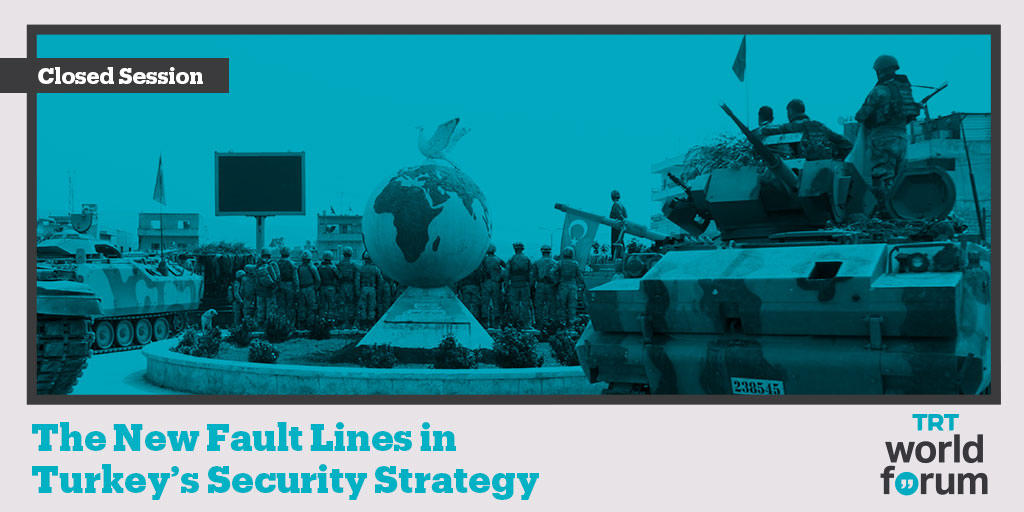When the actors are blended in the strong memory of history, international crises are probably the best teachers of destiny of geography. This is especially true for Turkey, as unprecedented volatile circumstances have been unfolding in the Levant since the foundation of the Turkish Republic in 1923. The more Turkey becomes aware of its past, the better adjustments and calibrations it can make to secure a favourable position and defend its national interests. In doing so, Turkey has added a new dimension of national security strategy to its foreign policy.
The contemporary geopolitical map of the Middle East indicates that it is a shatter belt region. It is an area which has been destroyed by internal conflicts, and whose destiny has also been affected by the intervention of the external great powers. These interventionist powers have increased their sphere of influence over their clients in the region through military, political and economic assistance. The compression zones are located in the narrower subsections within or in-between geopolitical regions. These zones, which are under intense pressure, are shattered through a combination of civil war and the interventionist actions of neighbouring countries. As a traditional geopolitical concept, the shatter belt refers to a geographical area where local tensions turn into serious conflicts between great powers which are outside the region. The great powers intervene into local conflicts because they believe that they have significant interests in these areas (Cohen: 2015).
Written by Dr Kaan Kutlu Ataç
Dr Kaan Kutlu Ataç is Assistant Professor in the International Relations Department at Mersin University and a Visiting Lecturer at the National Defense University in Istanbul. His academic interests cover strategy, national security, intelligence and security studies, American and Turkish Foreign Policies. He was granted the U.S. State Department International Visiting Leadership Program scholarship (2008) and the U.K. FCO Chevening Scholarship (Birmingham University, 2007).
